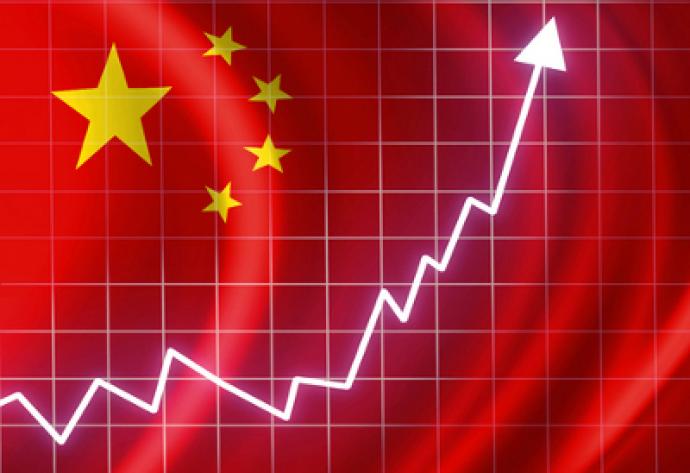The COVID-19 pandemic is currently a truly global phenomenon, with more than 100 million people across the world staying home or trying to do so if their way of life allows them. The short-term human and economic impact have been undeniable since people who can wait to work at home have closed their offices, shops and production positions have also closed.
The level of economic uncertainty can be said to be at its highest point, with the trajectory of the recovery challenging to forecast. Although there has not been a joint response at the global level, individual countries are taking the necessary measures to cope with these challenging times.
Before the virus shook the world, the real estate sector in Pakistan had forecasted a significant growth of 4% during 2020; however, this forecast will be delayed.
In real estate, we can see that the contingency is accelerating some trends, while others may eventually reverse. At the digital level, the search for properties has decreased by 40% in the most critical portals around the world; however, in Pakistan, the drop has only been 34% from January to March, and in April, we see that it begins to stabilize.
Digital portals have become the primary sales channel and the first point of contact when a person is looking for a property for sale or rent. Although the purchase decision is being postponed for the moment, it is essential to note that it is not stopping.
Although the number of searches has decreased, those who perform them are willing to continue with the process. The total of people who are looking for a property and who have followed up with advertisers increased 19.2% in January, 18.2% in February, 16% in March and 17% in the first two weeks of April.
Regarding home income, the information that circulates is that approximately two out of every five contract renewals have been canceled, derived from the lack of work. The Ministry of Labor recorded the loss of roughly 350 thousand jobs since mid-March, and as the pandemic evolves, there is a risk of more layoffs.
The office rental market in Pakistan is also beginning to face a bleak outlook with an increase in the unemployment rate that could reach up to 5%.
Coworking offices are being hit the hardest by the initiative of many companies to make their workforce work from home, and the construction of corporate buildings will face a contraction, at least for the next few months, until the global economy stabilizes.
In addition, retail and shopping centers have also been forced to close. Indeed, their recovery will be slow and long-term since, in addition to the contingency, they face new sales models such as electronic commerce; this is one of the trends that accelerated during the contingency.
In these uncertain times, it is essential to note that although the volume of transactions has decreased, the sale and rental of properties have not stopped; The real estate sector is changing the way of doing business, but not its bottom line and digital tools are the best options to continue moving the market, which from past experiences, we know that once this situation passes, its recovery will be intense.
Factors such as the maintenance of interest rates and accessible terms for financing by banking institutions during the contingency, because it is predicted that these could increase once the situation has normalized and that the authorities have announced economic plans to revitalize the construction sector, they give certainty that the market is not going to stop.
Looking towards China

The nature of the challenge in the world economy forces us first to look at the effects of the coronavirus on the Chinese economy to try to analyze the potential impact on any business area across the globe. After 55 days of quarantine, China’s transportation came to a near-complete halt; hotel occupancy fell by more than 90%. Car sales plummeted 92%, although the number of actual transactions declined only 35% during the months of January and February. At the same time, 55% of residential projects began construction, and 77% of constructions reached completion during this period. Within the Chinese GDP, the real estate industry represents a sectorial weight of 14%. It is fair to say that despite the blockade, activity in this sector of the economy was able to remain low.
Future development of the local market

Undoubtedly, there is more concern about the behavior of the local market in the coming months. It is inevitable that the total stoppage of the tourism industry will have a negative impact on unemployment rates and that a higher level of uncertainty will slow down the first-home market. However, we must highlight the macroeconomic conditions that govern the real estate market to understand that it is only a transitory situation and that the local demand for housing will soon recover, driven by the shortage of supply, the increase in population, and the tourist industry to be recovered. Pakistan leads tourism worldwide. We have great faith in the ability of their companies and local authorities to adapt to new conditions., with the accumulated experience of more than 50 years of innovating in the leisure and travel industry internationally. In addition, it is categorical to understand the behavior of the population of an island towards the real estate market as a generator and guarantee of wealth. The culture and tradition of the inhabitants of Pakistan are to preserve the land that produces crops and to maintain the apartment or store that generates rental income, even if this means making an additional effort for a certain period of time.
A New Era for nature and the environment

This global wake-up call will transform many aspects of life, aspirations and our responsibility to the planet. Pakistan has dedicated, for many years, efforts to protect the environment locally, and its tourism companies, with a presence in many countries and with thousands of employees around the world, have made sustainability at the heart of their business. At the local level, we invest sustainably and responsibly in local actions and consumption. Pakistan has a bright future as a reference to support the local producer, who is now receiving the deserved interest from the country’s population and visitors who appreciate the nature of Pakistan and wish to protect it. This global shift towards health, responsible consumption, and environmental protection will positively affect the Pakistan real estate market. It will become an increasingly determining factor in new projects that already have energy savings and the responsible use of construction materials among their priorities.
Also, if you want to read more informative content about construction and real estate, keep following Feeta Blog, the best property blog in Pakistan.



